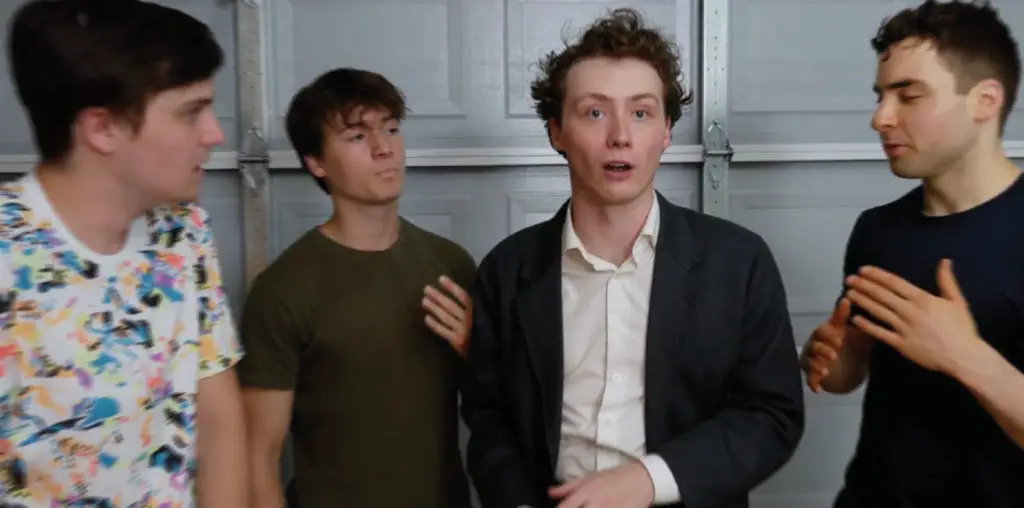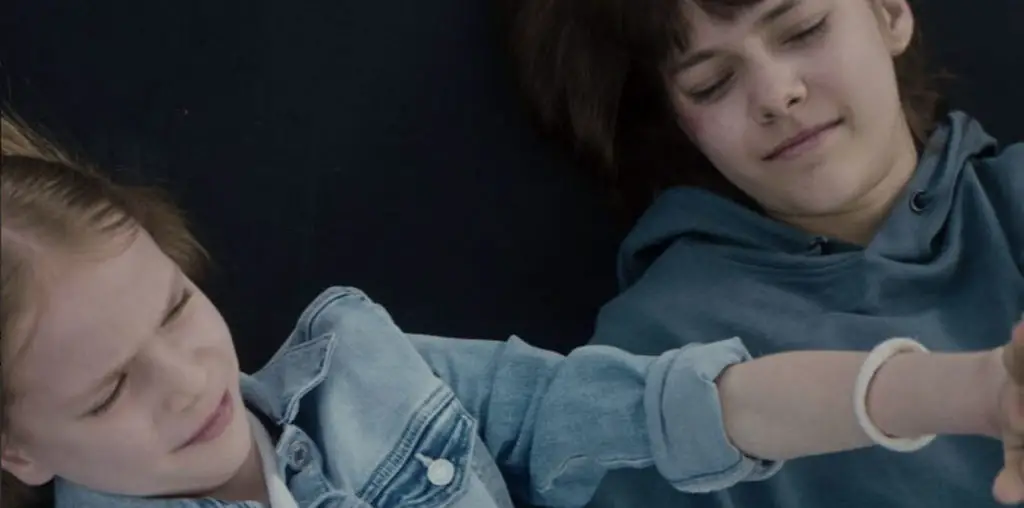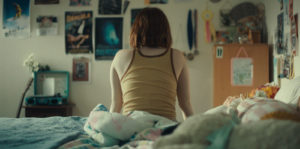
Co-directors and co-writers Pablo Feldman and Sophia Sabella’s feature Edge of Everything follows 14-year-old Abby (Sierra McCormick) during a difficult time in her life. Her mother has just died, and she has moved in with her estranged father, David (Jason Butler Harner), and his much younger girlfriend, Leslie (Sabina Friedman-Seitz). None of the three of them think this is an optimal arrangement. At her mother’s funeral, one of her aunts offers to take her in if the situation gets too weird. Abby is dealing with an onslaught of changes at the worst possible time and has no real support to help her navigate them. She is not close with her father, and has nothing but contempt for Leslie. Her friends are leading more normal teen lives, but the mid-teen years are still traumatic for them in the usual ways.
When Abby happens across a slightly older wild child named Caroline (Ryan Simpkins), she begins to swerve out of control under the extreme influence of her new acquaintance. Party sex, drugs, and other risky behaviors are temptations Caroline exposes her to for the first time. Her journey culminates on one crazy night when everything aligns explosively to generate a singular beautiful disaster.
The two strongest filmic elements of Edge of Everything are the cinematography and the stand-out performance of Sierra McCormick as Abby. Scott Ray’s shots of the mountain location are breathtaking. He also keeps the framing and camera movements compelling, at times frenetic, and at others intimate, almost like the viewer is eavesdropping on private moments.
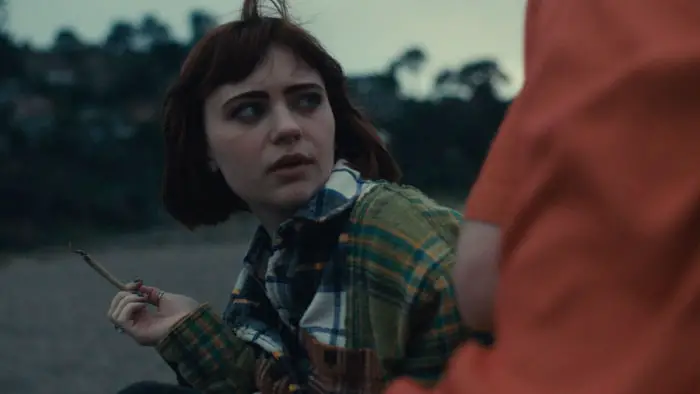
“Her mother has just died and she is moved in with her estranged father David …”
Sierra McCormick owns the film with her performance. The best comparison that can be made is to Evan Rachel Wood in the 2003 film Thirteen. McCormick’s acting skills are extraordinarily developed for someone her age. This is good and bad. The focus on Abby is so intense, and McCormick shines so brightly that the other characters in the film feel like 2-dimensional props for her to bounce off of. Certainly, no other performances are as tight or as emotionally interesting. The unfortunate side-effect of that is that we never get a chance to know or connect with her father or her new, dangerous friend, Caroline. They are little more than obstacles or catalysts. Investing the viewer more in the peripheral characters would give the film deeper stakes.
There are so many stories told in films and books now about disaffected, at-risk youth making the transition to adulthood that the topic can legitimately be considered a genre. We’ve already mentioned Thirteen. Dead Poet’s Society, Lady Bird, and Ghost World are other notable examples, though there are many more. We can even go back to The Breakfast Club. It seems each generation must rediscover the angst of the rite of passage. Consider The Catcher in the Rye.
This is not a bad thing. Repetition is one of the best ways to learn and internalize an experience. That said, however, it’s important that when a new generation takes up the mantle of telling the age-old tale, they add something new that is unique to their experience. It’s not clear that Edge of Everything pulls that off. Still, it’s an entertaining film and likely will be more relevant to viewers of the appropriate age, that is to say, those who are around or just before their teen years now.
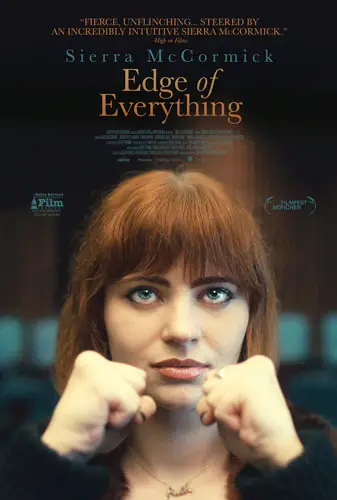
"…McCormick owns the film with her performance."
